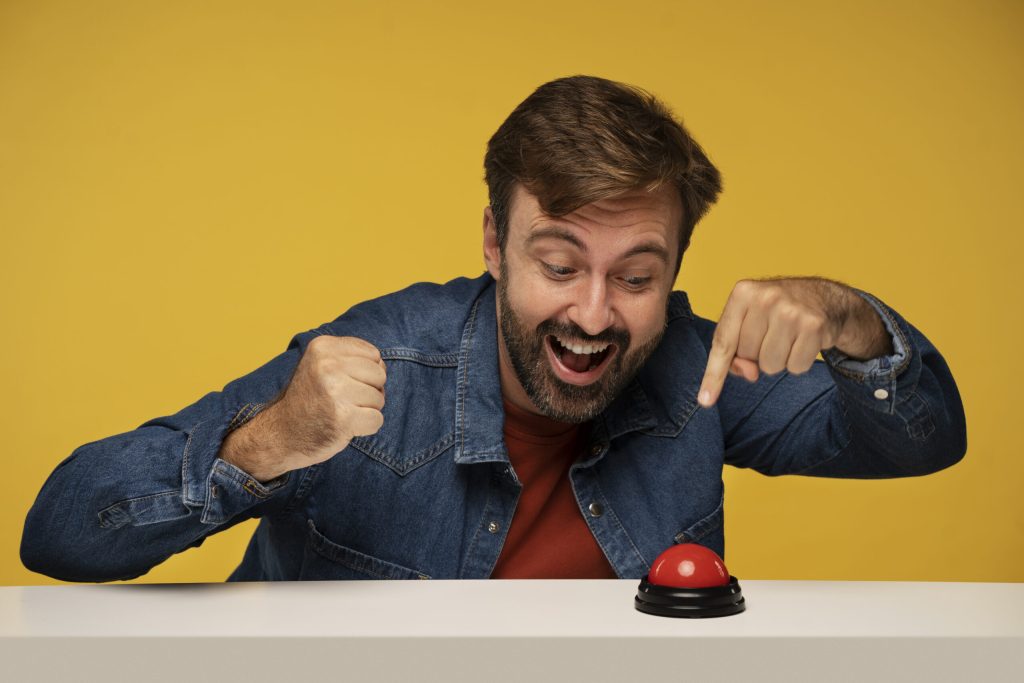
Visits: 72
Can We Control Our Choices?
Many of my clients make temporary or permanent choices that they sometimes find difficult to explain and therefore often find themselves having to deconstruct elements that have relied on perceptions, beliefs, influences, etc., showing a lack of reflection.
As we shall see, there are many explanations for this phenomenon. Education is the first of them, you learn to think, analyze and reflect and on the other hand, the brain naturally tends to make instinctive choices.
It would be absurd, whatever the approach, wanting to standardize, categorize or predict a choice according to predefined parameters or scales of a priori values, each individual has his own history, education, values that influence his emotions and evaluation criteria.
Which should not necessarily be taken, however, for irrationality since a choice is by its nature subjective.
Nor should we forget the great disparities in the capacity for analysis or reflection of individuals, as can be demonstrated by an IQ test, even if this is not entirely representative.
We are continually led to make choices, which in everyday life are more or less important, and almost automatic, this has been demonstrated by work in cognitive psychology.
There are also less trivial choices with significant or costly repercussions in terms of personal investment, such as choosing to adopt a dog or change a car.
During career orientation or reorientation coaching, the importance and impact of the choices that will be made lead us to question this question even more.
Faced with the question of choice, the individual is constantly confronted with questions such as: What is the best choice? Did I make the right choice? How can I be sure it’s the right choice? How to make the right choice? Isn’t a choice simply a matter of compromise? Can we consider that there would be an ideal choice?
We can of course approach such a subject from different points of view, two in particular which immediately come to mind, the point of view of philosophy which would attempt to answer all the above questions, and the point of view of practice c, i.e. what can I do to make an intelligent and rational choice?
A rational choice means making a choice of reason which means: Specific faculty of man, through which he can know, judge and behave according to principles: reason considered in contrast to instinct.
I will first define what it is and then I would prefer to focus on the pragmatic aspect, because I think it will be beneficial for the reader.
I differentiate between two large families of choices even though perhaps we could start breaking the problem down based on context, cultures, etc, I will still try to stay simple and accessible without overcomplicating anything that is of no fundamental interest in the context of this article, because even if it is interesting, it is not about being able to understand exactly what is at stake in making a choice, but about defining how to make an intelligent and sensible choice and to do this, it is necessary to know some principles.
We can dissociate two types of choices.
We have the choices:
– dictated by emotion and whose rationality is unconscious or little worked on by the conscience.
– dictated by emotion and reason.
Our choices are naturally based on our emotions.
I feel that a purely emotional choice is no longer a good choice, even when it comes to survival.
The nature of pure emotional choice has a very ancient origin and has been developed and fine-tuned by the brain over millions of years to ensure human survival in conditions and contexts that have nothing to do with our current social and technological life .
A reality that many individuals fail to grasp in all its globality and complexity, or even simply do not know the mechanical, physical or physiological implications of the technologies and tools used daily and of the appropriate responses to situations.
When faced with situations in which action must be taken, when faced with the urgency of a situation, reasoning and quick thinking do not help to prevent an error. The adaptation could not do the job of him, because it is slow, while these last 300 years have profoundly changed human life.
Our emotional system could not adapt in such a short time.
We are emotionally deficient in the world we live in. Others are also socially deficient, unable to adapt to the complexity of society, in whole or in part.
This is to be associated with the average individual’s incomplete scientific knowledge of the system to which he belongs.
In short, our primitive brain on an emotional level must evolve and take into account a complex, changeable world, of which it knows little about the principles and without the necessary knowledge to react as it is used to do, i.e. immediately, with relevance.
Science has shed interesting light on the cognitive phenomena of decision making. In short, recent studies in cognitive psychology have shown that the brain tends to make choices based on emotion, very quickly, and that reason intervenes little or nothing and often unconsciously in many of our daily choices.
For example, if my house is on fire, the first thing I will do (primitive brain decision) is to get out as soon as possible to get to safety. But I will hardly be able to evaluate whether to go out immediately or first to collect my precious things!
A choice of reason, under the control of emotions.
We are victims of our emotions, influenced by too many things that most of us are not even aware of on a daily basis and that we cannot control, even when like me you are very interested in these questions, and if you are not convinced, I invite you to remember the about fifty different cognitive biases affecting emotions, reasoning, representations and beliefs, among others.
In this context, it is not difficult to consider that even a rational choice is biased.
If we were to define a choice of reason as an ideal or perfect choice, then the individual would need a priori to have all the information necessary for his choice and to have understood it perfectly, for this information to be true and validated by a meta-analysis (maximum level of evidence/scientific validation) and that such information is of such a nature that it cannot be challenged by subsequent discoveries.
This last point automatically poses a problem for many studies of the human sciences. It is therefore also necessary to have the certainty that this choice has not been influenced and that no prejudice has altered it.
I think you understand that it is perfectly impossible.
Therefore, making a choice is a compromise, one option preferred over another, the consequences of which are likely to be uncertain and you have to live with.
An ideal, perfect, objective, rational choice is not something that can be achieved by the human brain.
However, even if in certain contexts the consequences can be uncertain and where a choice can be considered to involve an element of risk, making a reasoned choice turns out to be choosing consequences.
Originally posted 2023-03-14 11:13:39.


